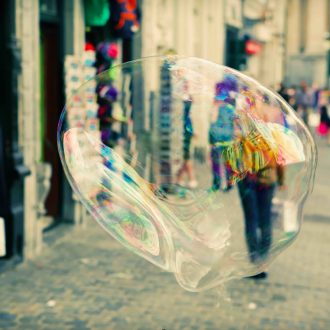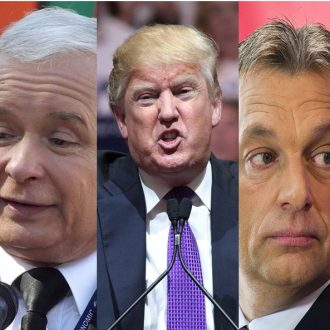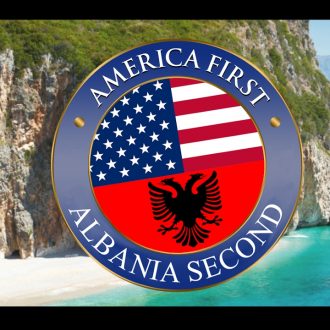Today, most of us understand the huge impact we are making on the environment. Experts agree that we need to act quickly to face the urgent problem of global warming. Yet, just a few weeks ahead of the international climate conference, COP21, taking place in Paris this December, people in countries like France still put the environment right down the list behind unemployment, delinquency and purchasing power (Ipsos Survey)… even though we are talking about the survival of humanity in the mid and even short-term.
Why aren’t people more interested? Is it because of the way the media covers ecology-related issues? Is it because of the words we use to describe our relationship with nature?
How can we tell people about this life-threatening issue that requires us to find a collective solution? To answer this question, Place to B carried out a series of interviews entitled “Storytelling & Ecology”.
Feature by Eve Demange.
3 – “We’re talking about so much more than ecology; this is about a whole new way of envisaging the world”
At the end of the preview screening of Demain (Tomorrow), the new film by Cyril Dion and Mélanie Laurent, one of the journalists appears surprised, commenting, “This isn’t a banal documentary about the environment, it’s full of joy!”. Joyful and concerned about the environment. Is that possible?
Over the last few weeks, Cyril and Mélanie have travelled the length and breadth of France, screening their new film Demain (Tomorrow), a documentary bursting with optimism and a good dose of pragmatism too. Place to B managed to catch up with them in Bordeaux. We talked about ways of inspiring people to create change.
P to B : What was the story that you wanted your film to tell?
Cyril Dion: People often seem to associate environmentalism with the image of sandal-wearing idealists who have forsaken modern society for an isolated existence in the mountains doing something rustic like sheep herding. We wanted this film to tell a different story, to show that durable solutions do exist, and that these solutions can also work on a large scale, as is the case with zero waste in San Francisco, for example.
The West has forged a model of development that is now showing its limitations. Yet this model of development remains the example that many other countries are following. We wanted our film to show people, in the West in particular, who are bringing into existence a different vision of the world. We are living through a period of fundamental and widespread change.
Mélanie Laurent: We are hoping to produce a shift in the collective imagination. Nancy Huston’s book The Tale-Tellers: A Short Study of Humankind has had a big impact on me. Huston tells us that human beings differ from other species in our ability to create narratives and invent stories that give meaning to our reality. (Note from editor: “Where is the human race? In the fictions of which it is comprised…”)
“Woven into existence through the centuries, these fictions become, through the faith that we place in them, our most precious and irrefutable reality. Although they are drawn from the realms of the imaginary, they create a second plane of human reality, universal in its different incarnations through time and space. Haunted by these fictions, shaped by them, human consciousness is a mythical machine… and inherently myth-making. We are the myth-making species” (Published in French by Actes Sud, pp. 29-30).
We are a part of this species of myth-makers. We all know that one day we will die and so we make myths and tell ourselves stories in order to find strength. Demain (Tomorrow), the film, is borne of our shared desire to tell a wonderful story. The question that we asked ourselves all the time we were making this film was, “Are we going to get there?”
P to B: How did you structure the film, from a narrative point of view?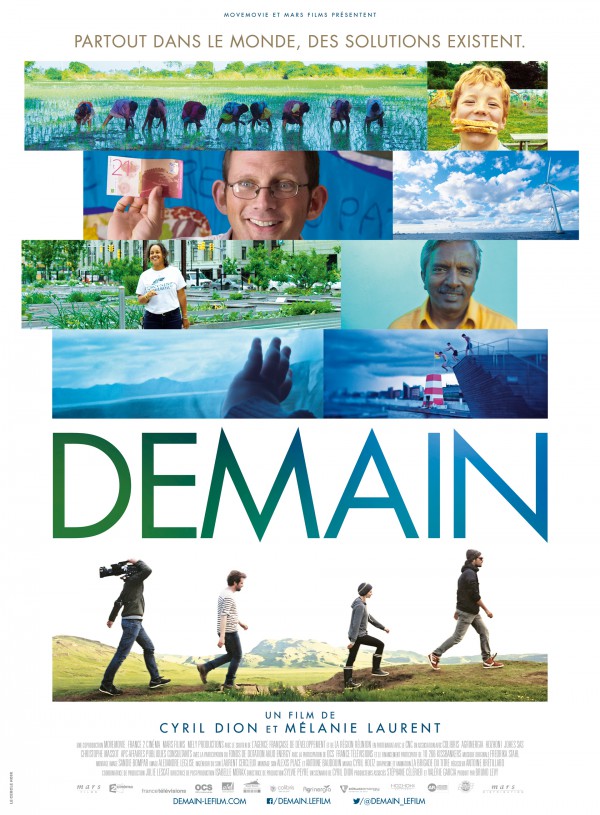
Cyril Dion: We structured the film by following our own thought processes. Throughout the film we share with the audience the questions that we asked ourselves over the months that we were filming. We ask how will we be able to feed ourselves healthily and without the use of pesticides in the future? How will we heat our homes without producing carbon dioxide emissions?
We begin by looking at agriculture, essential to feeding the world’s population, and then we look at energy, the economy and education. The film is structured around 4 questions that are fundamental to the ability of human society to function. We raise the questions, then we question the system. And with each question, we go out in search of the answers, of possible responses, and of large-scale solutions, in capital cities, whole regions or entire countries.
Mélanie Laurent: Our aim wasn’t to make an environmental documentary but to communicate a different vision of society.
P to B: How do you explain the general public’s lack of interest in ecology?
Cyril Dion: I believe that the mistake is to use the term ecology. After all, what is ecology? A manner of seeing humans in their relations with others, with society, and with their ecosystems. The word “ecology” gives the impression that we’re talking about a distinct discipline separated from people. But what we’re talking about is a new way of envisaging the world. The fact is that the majority of people have understood the message. And when we tell them again, their response is, “oh no, not that again, we’ve understood the need to change. The problem is that we don’t know what to do.”
So we decided to stop talking about the issues directly, and instead move onto the next step, looking at and explaining what people can do. We went out to meet the heroes who are doing things that work. And when we see the level of enthusiasm surrounding this film, we don’t experience this purported disinterest, quite the opposite in fact. People wanted us to make this film (note: the film was partially funded by 10270 people on the crowdfunding platform KissKissBankBank, with a record amount of funds raised in 3 days); they come to see us, they support us, it’s fantastic.
Mélanie Laurent: We ourselves have also changed as a result of making this film. For example, we’ve both become vegetarian, and that’s quite something! We’ve each changed in our own ways, at our own pace. During a screening we met a woman who said to us, ” That’s it, I’ve decided, I’m going to start recycling my household glass”. So for that person this was where the change began. The film aims to reach each viewer in the place they’re at without being judgemental, enabling them to think about the issues and how they relate to them and hopefully to make some changes to their own habits.
P to B: On December 2nd this film will be screened during the COP21, the International Climate Conference. Telling this new story is a good way of raising awareness among the younger generation, rather like Nicolas Hulot putting himself in the spotlight with the most famous bloggers on the web. What do you think about that?
Cyril Dion: We submitted an applicati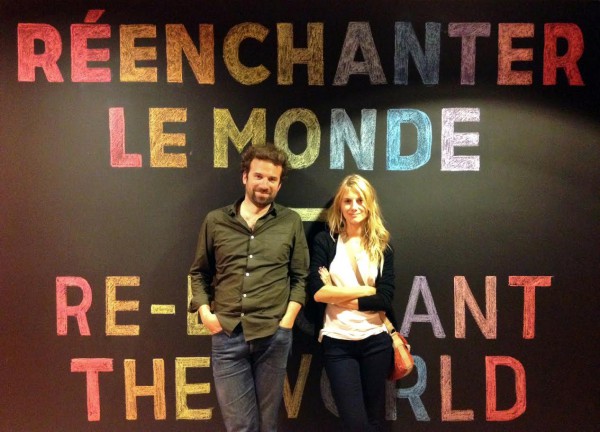 on for official approval of the film by the French National Education system. This would have allowed us to screen the film in schools throughout the country. But our application was refused.
on for official approval of the film by the French National Education system. This would have allowed us to screen the film in schools throughout the country. But our application was refused.
P to B: On what grounds?
Cyril Dion : We were told that the issues the film addresses are not on the curriculum and that the film “could be seen as controversial by parents”. They told us that we were expressing a personal opinion. But our approach was simply to interview the people who have important ideas for the world.
P to B: And how did you choose the people you featured in the film?
Mélanie Laurent: This film originates from a very human endeavour. Above all we wanted it to be beneficial to those who conceived of it, our supporters, and for all the people who come to see it. The film portrays people who’ve got together to change things in the towns, regions and countries where they live. Their examples are proof of what is possible, proof that from the moment the wheels are in motion no challenge is insurmountable.
We wanted to transmit people’s depth of feeling, illustrating individual narratives without going into the details of their personal lives. In our preparatory work we chose our heroes mainly because they were passionate, because they were good-natured and because we were moved by them. We wanted our audiences to see the lives that are being lived as that makes people want those things as well. On paper the people we filmed appeared to be extraordinary. It’s crazy but we were never disappointed by the reality. We were very lucky.”
P To B: And very inspired too.
Translation: Rachel Robertson

